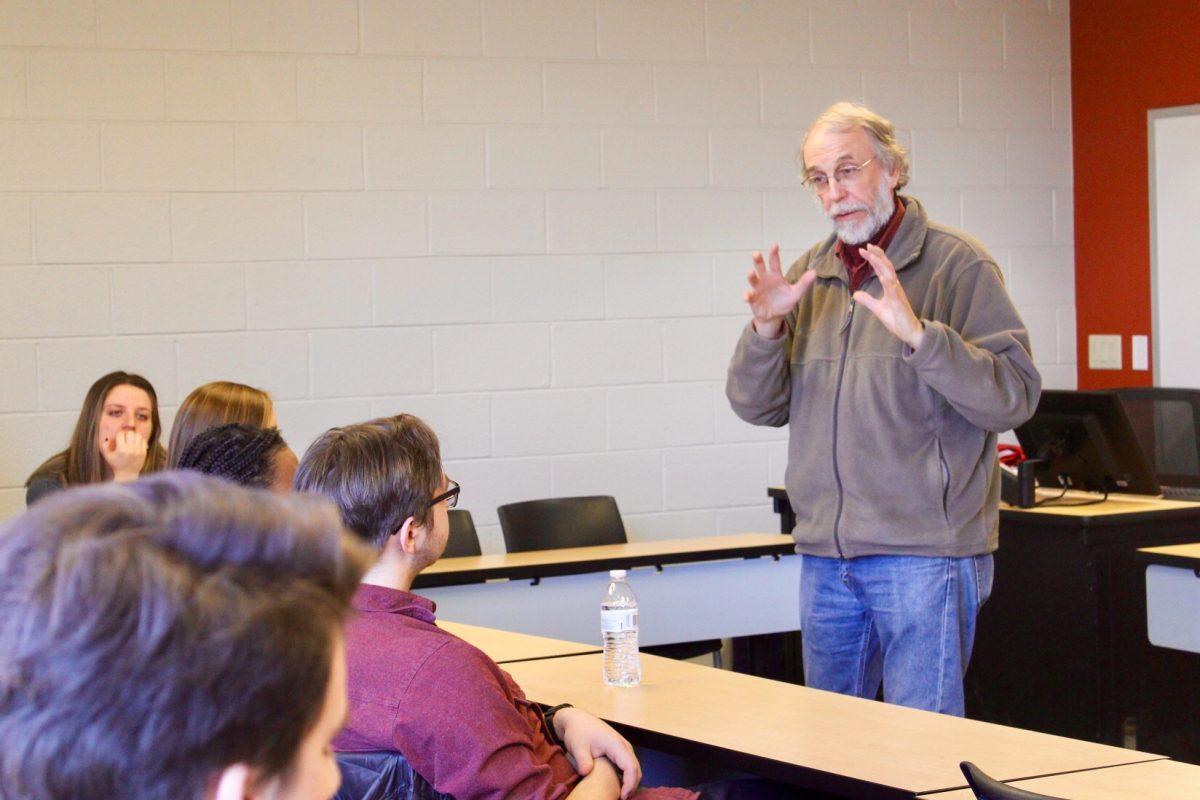Faculty presentation addresses race curriculum
As part of university efforts to help faculty create conversations about race in St. Joe’s classrooms, Ann Green Ph.D., professor of English, presented a seminar on critical race theory and service learning on Feb. 14.
The seminar, one of 20 events hosted by the Office of Teaching and Learning this year, focused on how to incorporate a service learning component in classrooms that would prompt discussions about issues of race. Green said she forms relationships with students in her service learning classes in order to have difficult discussions about race and diversity.
“The critical race theory gives students a language to talk about race and to learn about race,” Green said. “If we don’t talk about it, we aren’t going to be able to dismantle racism. [These conversations] are not always going to be comfortable.”
Green said because St. Joe’s is a predom- inantly white institution, students do not always have the language to talk about race.
“When white students are doing service learning in communities of color, they of- ten don’t have any kind of language to talk about race, because for middle-class white people, talking about race means being racist,” Green said.
The first part in getting people to feel comfortable talking about race is to build a community where mistakes can be forgiven because they are part of the process, Green said.
“Everybody, and particularly white people, but everyone in the United States needs more practice talking about race because it’s such a forbidden subject, particularly for people in mixed race groups,” Green said.
The process of having conversations about race often depends on the educator’s understanding of what it means to have an inclusive curriculum, said Melissa Logue Ph.D., assistant professor of sociology and criminal justice. Logue said she had worked with St. Joe’s faculty in previous years to help professors change their syllabi in order to foster racial understanding.
“One of the things we talked about was [to] think about whose work you highlight,” Logue said. “Look at who you’re putting out there as the key pieces that you think students should know about.”
Green said that faculty members should encourage students to lean into their discomfort and challenge their notions about race, even if it might not be a topic that is integral to the subject.
“In the service learning courses that I teach, race is woven throughout the semester,” Green said. “It’s not just one unit, and we reflect on our own racial positioning, whether we’re white, black, Asian, Native American, while we’re thinking about the race of the communities we work with. Then we think about what structures are in place that make this community look like it looks.”
Logue said one way faculty can intentionally include a racial dialogue in their curriculums is to use online video conference platforms such as Zoom and Skype in their classrooms in order to feature ethnically and racially diverse scholars, especially as it relates to underrepresentation in the science, technology, engineering and math (STEM) fields.
“You’re not turning them into spokespeople, you’re highlighting their research,” Logue said. “You’re asking them to talk about their specific trajectory, and it also will send a message to your students that you thought that this was important.”
Logue said this type of classroom exchange is not only beneficial for students of color, who can interact with someone who looks like them in their field of study, but also for white students because it shows them that there are people of color who are successful in these fields.
“Maybe it breaks down some stereotypes that they don’t know they have about people of color in the sciences,” Logue said.

Owen Gilman, Ph.D., professor of English helps his Texts and Context class to think about their own experiences with race at their on-site service learning experiences. Gilman said at the end of the semester, his class will read Toni Morrison’s “Sula,” a book about life in an African-American community in Ohio.
“We’ll have a chance to pull thoughts together on the race issue in America as we work our way through it,” Gilman said. “We will have conversations that deal with issues related to race.”













































